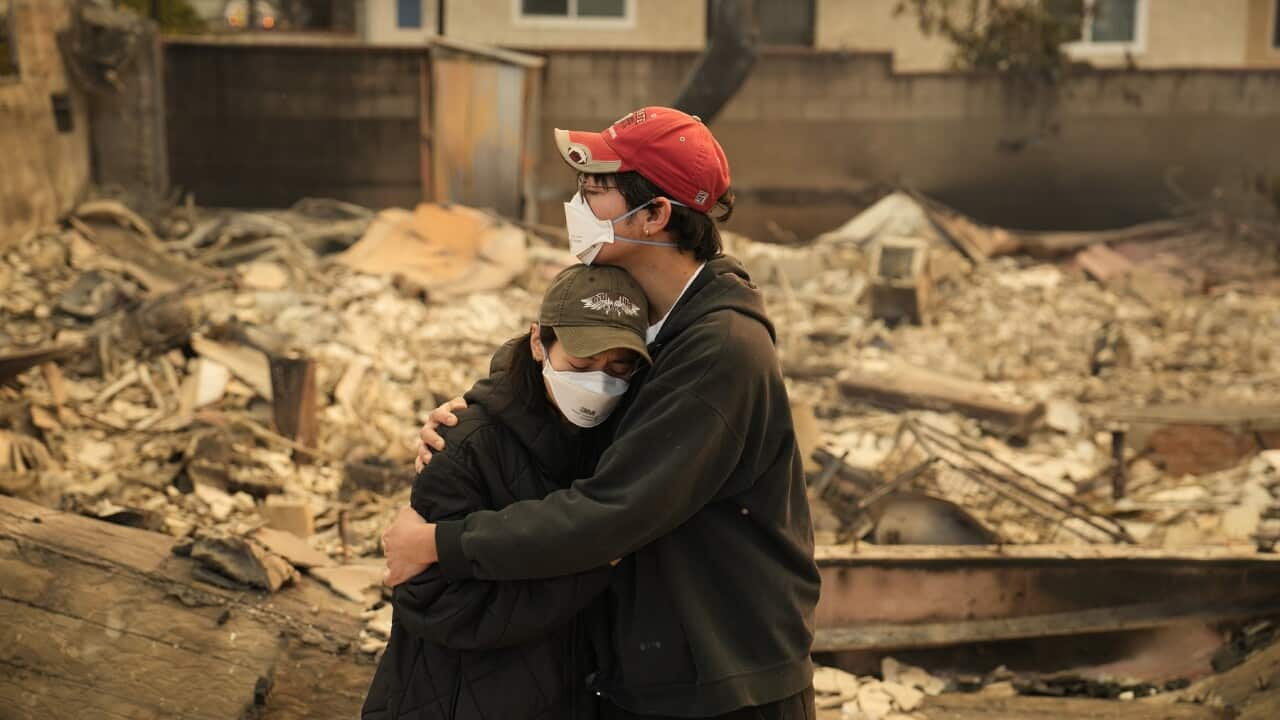TRANSCRIPT
Music dominates the early Christmas memories of community worker Delphine Yandamutso.
"Christmas time is a celebratory time, time to celebrate just again, I guess catch up, food, celebrations and also when I grew up from high school to my young adult, I was in a choir. So I have lots of Christmas memories in terms of singing, having carols.”
But since immigrating to Australia from Rwanda in 2007, Christmas time looks very different.
Her mother, sister and brother aren't here to sing or celebrate with her.
"I try to sort of switch my thinking in terms of I'm with them in spirit, let me say that in spirit. And I know that though they are far away, but I try to think of them as being present in my life and enjoy the moment so that I don't feel like something's missing and not enjoyed this moment, if that makes sense."
That mirrors advice given by the Manager of Clinical Advice and Governance for Headspace National, Caroline Thain.
She says for those longing for family this holiday season, it's important to create new memories and traditions.
"Not only are relationships complex and sometimes tricky when we're spending more time with those people, holiday time can be a time of great sadness when we're thinking about those loved ones that we can't be with anymore for whatever reason. And the advice that we give families in that situation is to think about some of those traditions and rituals that you would do to honor those people, and also trying to be as brave as you can be stepping into new ways of being without them there."
But even then, she says the holiday period can be a particularly challenging time for many Australians.
"I think the holiday season, we sometimes assume, and I think it's because society tells us that the holiday season is going to be fantastic and great for everyone, but actually there's a big shift that occurs for families when all of a sudden young people are not going to work or school. And so the family dynamic can change at home and it can also place us under more pressure and stress when those relationships can look a little bit different when the home environment looks a little bit different."
The Salvation Army says they are preparing for the hardest Christmas in their 140-year history in Australia.
Their research shows that 6.3 million Australians are unable to afford housing this year, with almost one-in-four concerned their children will miss out on presents and a further 2.5 million worried their children will miss out on food.
An estimated 1.2 million people won’t even talk about Christmas with their children – because they can’t afford it.
External Communications Manager for the Australian Red Cross Major Gary Masters says the findings are devastating.
"There are certainly people who have made comments like, 'I've worked my whole life and donated plenty to charity. I never thought I'd have to come here and ask for help and a Christmas hamper as I don't know how I'm going to do Christmas this year otherwise'. Another person said, I just my kids to feel a sense of normalcy and because I've lost my job, I just can't afford to give them that normalcy this year."
The Salvation Army data also shows, this year, 1.9 million Australians will reach out to a charity for help, with more than 54 per cent doing so for the first time.
Australian Red Cross Chief Executive Andrew Colvin says that's particularly true of people from a migrant or refugee background.
He says those groups may feel the holiday stress uniquely.
"In this age of modern communication, we get accustomed to being able to pick the phone up and talk to people, but for many of our migrant families and migrant communities, that's not possible. They might be coming from countries that have been torn apart by war or conflict. Communication might not be easy. At a time when we're all thinking about family and loved ones and friends, it's our migrant communities in particular that often it just reinforces and highlights that they can't reach back to their families or they can't make that contact."
Delphine Yandamutso says she acknowledges how hard it can be for those in the African diaspora, and others who've settled in Australia.
"Christmas time can be full of different emotions, positive ones in terms of at least I'm happy, I'm in a safe place, I don't have bombs flying over my roof. And that can be a positive experience and other people can experience loneliness. For example, if it's someone who's having separated from their family and who are uncertain of when they will be able to see their family, then it can be a tough time."
And with that, Mr Colvin of the Red Cross is issuing a Christmas plea.
"2024 has been a difficult year. We know that. It's been difficult in the global community, but it's also been difficult back home. It's been difficult because of a cost-of-living challenges. It's been difficult because it's hard to find appropriate accommodation and housing. What we're asking Australians right now is while you are celebrating the end of year, however you celebrate













